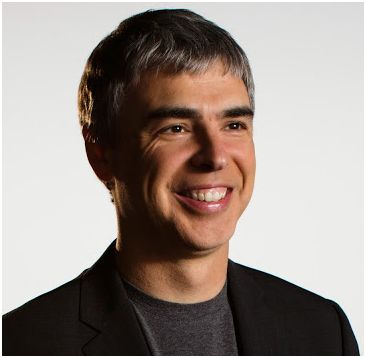Tunnahs musings: G is for Google, but Alphabet has H for health at the centre

As the world reacts to the surprise announcement that Google has restructured under the new parent company Alphabet, Paul Tunnah muses on the fine details that point the giant corporate firmly in the direction of improving healthcare.
For anyone keeping an eye on the news outside pharma, you have probably seen the recent announcement about Google. Specifically, Google is no longer Google as it's now Alphabet, with Google as a subdivision. Makes sense right?
While at first glance your reaction, like mine, might be along the lines of 'so what?', it actually gives some pretty strong hints at the direction the company is moving in and I think Larry Page has health very firmly on his mind. The official announcement can be found at the new (and rather trendily URL'd) parent company site https://abc.xyz, which explains how the more 'traditional' Google offerings (e.g. Search, YouTube, Gmail etc.) will still reside within as the Google subsidiary of Alphabet.
"It's what sits outside that is really interesting, as founder Larry Page specifically called out health"
However, it's what sits outside that is really interesting. Co-founder Larry Page specifically named its ventures in healthcare as examples of 'far afield' interests which will sit more comfortably in the new Alphabet structure: "What do we mean by far afield? Good examples are our health efforts: Life Sciences (that works on the glucose-sensing contact lens), and Calico (focused on longevity)."
Larry Page
For those less familiar with Google's current history in the healthcare space, it's time to get up to speed. Google Life Sciences has already churned out some interesting projects, most notably the Google Contact Lens (mentioned above), which uses smart technology to constantly measure glucose levels in tears, with initial application for managing diabetes but licensed by Novartis for potentially much broader use.
But that's just the start. It is, arguably, Calico that is the more interesting healthcare venture by Google. Founded in 2013, Calico (California Life Company), was established to conduct research into understanding and tackling ageing, leading to fantastic headlines around how the Google founders aimed to cheat death.
While that may remain an aspirational goal, Calico has some pretty heavyweight people behind it, not to mention the significant funding provided by Google, now Alphabet. Founder and CEO Arthur Levinson is a stalwart of the pharmaceutical industry and former CEO of Genentech. He is now supported by a team that reads like the great and the good of the drug industry, including several other notable Genentech/Roche alumni.
"Page's co-founder of Google, Sergey Brin, has already seen his mother diagnosed with Parkinson's Disease"
But Calico is not just acquiring expertise – it's partnering too. One of its bigger deals, announced last year, was a $250 million partnership with AbbVie focused on neurodegeneration and cancer, which has an option to become a $500 million deal. Subsequent deals have been struck with a number of notable research centres, including The Broad Institute of MIT and Harvard, University of California and the Buck Institute.
It shouldn't really be a surprise to see Google moving in this direction. After all, healthcare is becoming a more pressing issue for the founders as, like the rest of us, they age. In particular, Page's co-founder of Google, Sergey Brin, has already seen his mother diagnosed with Parkinson's Disease and has a high risk of developing the condition himself in later years.
And it's not just Google that is shifting its attention to healthcare. Personal DNA testing company 23andMe recently announced it was moving into the drug development business. For anyone not keeping up with the health technology story, 23andMe is led by Sergey Brin's ex-wife Anne Wojcicki, who is also tapping up ex-Genentech talent. How long will it be before Mark Zuckerberg, after the recent news that he is now an expectant father, starts to pay a lot more attention to healthcare too?
"These new technology companies have none of those preconceptions and they're moving full steam ahead to find new approaches to tackling disease"
It's a trend I've been following with interest for some time and it's one that everyone in healthcare should be interested in – most notably the pharmaceutical companies. While the drug industry has, of course, got strength from its enormous heritage in medicine, it also has the shackles of a defined way of doing things that can be difficult to shake off. These new technology companies have none of those preconceptions and they're moving full steam ahead to find new approaches to tackling disease.
So pay attention to Alphabet. This is more than just a change of name for Google – it's a statement of intent with a heavy focus on healthcare. For patients it's definitely good, but the pharma industry needs to make sure it's not caught napping, like the licensed taxi companies that never saw Uber coming.
Until next month, keep an eye on Alphabet and, as always, stay well.
About the author:
Paul Tunnah is CEO & Founder of pharmaphorum media, which drives better communication and collaboration between the pharmaceutical industry and other healthcare stakeholders. Today, the group encompasses both the digital thought leadership publication, www.pharmaphorum.com, and pharmaphorum connect, the trusted healthcare media consultancy, which helps clients tell a clear, engaging story that connects with the right audiences and influencers using pharmaphorum's global healthcare networks.
Dr Tunnah holds a BA in Biochemistry and DPhil in Biological Sciences from Oxford University.
For queries he can be reached through the site contact form or on Twitter @pharmaphorum.
Have your say: Will Alphabet revolutionise healthcare?
Read more of Paul Tunnah's musings:
Welcome to the age of information therapy











